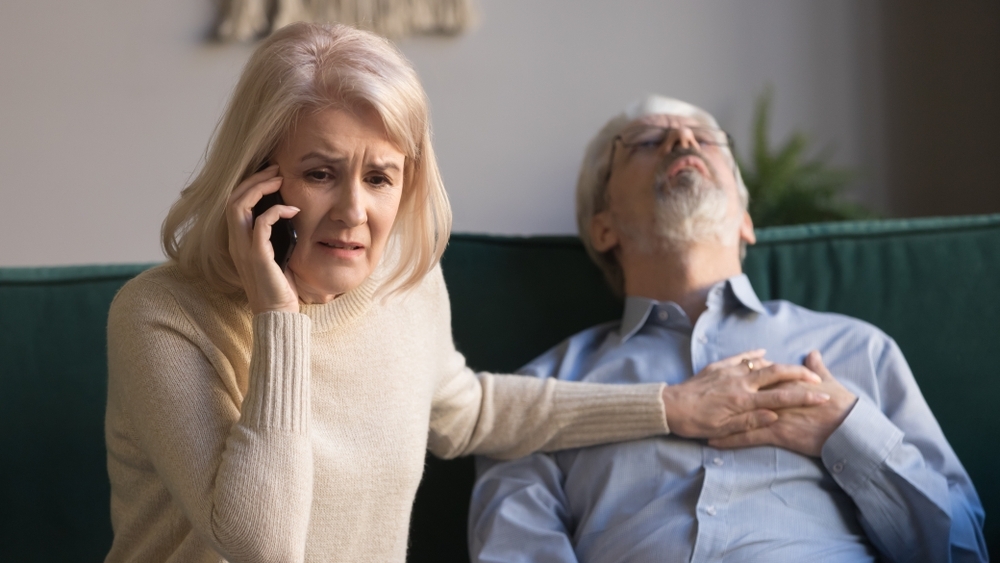
UPDATED: 11/17/2020
AEDs, or Automated External Defibrillators, are special defibrillators that bystanders can use to treat victims of sudden cardiac arrest. AEDs are portable devices that analyze heart rhythms, detect abnormal ones, and deliver an electric shock when necessary. CPR is vital because it keeps some blood flowing to the heart and brain, but only defibrillation with an AED can restore your heart’s normal rhythm and save your life.
AEDs are widely available in public and private areas where large groups of people congregate, such as office buildings, shopping malls, and schools. However, an increasing number of people are now purchasing AEDs for their homes. Since approximately 80% of sudden cardiac arrest cases occur at home, many people believe that having an AED at home could potentially save a loved one’s life.
Table of Contents
The Debate Surrounding Home-Use AEDs
A 2008 study done by the National Institutes of Health and the National Heart, Lung, and Blood Institute showed that home-use AEDs are safe and effective. Critics argue that there is no evidence supporting the claim that home-use AEDs save lives. They fear that people will delay calling for emergency assistance if they have an AED in their homes. Moreover, critics express the concern that people with home-use AEDs won’t keep them properly maintained or that they’ll forget how to use them over time.
How to Determine Whether You Need a Home-Use AED
Talk with your doctor to determine whether having a home-use AED would be a good idea in your situation. Bear in mind that the only AED on the market that doesn’t require a physician’s prescription is the Philips HeartStart Defibrillator, which is appropriate for home use.
If you are at high risk of cardiac arrest, having an AED in your home could save your life because if you were to suddenly collapse, a friend or family member could grab the AED and deliver a jolt of electricity to your heart while performing CPR. Having an AED at home will eliminate the need to wait for several minutes until an emergency crew arrives with an AED, and in sudden cardiac arrest, every minute counts. If you live alone, however, having an AED in your home would be virtually pointless because there will probably be no one around to use it in an emergency.
Other factors you’ll want to consider when thinking about whether or not to purchase an AED are your budget, physical limitations, and philosophy. AEDs cost upwards of $1800 and insurance typically doesn’t cover them, so you have to think about whether or not you will be able to afford the investment. In addition, consider your physical limitations. In order to use an AED effectively, you or a family member must be able to sit or squat on the floor to operate the device and then get back up. Otherwise, a home AED would be of little use.
Another important factor to consider is whether or not you’d actually want to be resuscitated if you were to experience cardiac arrest. Some people with serious health problems or a terminal illness may prefer to let nature take its course rather than be resuscitated with CPR and an AED. The choice of whether or not to place an AED in your home is ultimately yours.
EMC CPR & Safety Training, LLC offers on-site CPR & AED trainings nationwide. In addition, we provide direct consult for the purchase of an AED. For more information or to schedule a class, please call 1-800-695-5655 or fill out our contact form.
ABOUT EMC CPR & SAFETY TRAINING, A PREMIER CPR TRAINING COMPANY BASED OUT OF NEW YORK CITY:
EMC CPR & Safety Training, LLC is a company who specializes in providing American Heart Association courses and certification. Our team of instructors has trained thousands of students on the nationwide. We offer free phone consultation to determine how we can best meet your course needs; call 800.695.5655 today to learn how we can help you save a life.
Disclaimer
All the information on this website – www.emccprtraining.com – is published in good faith and for general information purposes only. EMC CPR & Safety Training, LLC does not make any warranties about the completeness, reliability, and accuracy of this information. Any action you take upon the information you find on this website (EMC CPR & Safety Training, LLC), is strictly at your own risk. EMC CPR & Safety Training, LLC will not be liable for any losses and/or damages in connection with the use of our website.
From our website, you can visit other websites by following hyperlinks to such external sites. While we strive to provide only quality links to useful and ethical websites, we have no control over the content and nature of these sites. These links to other websites do not imply a recommendation for all the content found on these sites. Site owners and content may change without notice and may occur before we have the opportunity to remove a link which may have gone ‘bad’.
Please be also aware that when you leave our website, other sites may have different privacy policies and terms which are beyond our control. Please be sure to check the Privacy Policies of these sites as well as their “Terms of Service” before engaging in any business or uploading any information
By using our website, you hereby consent to our disclaimer and agree to its terms.
